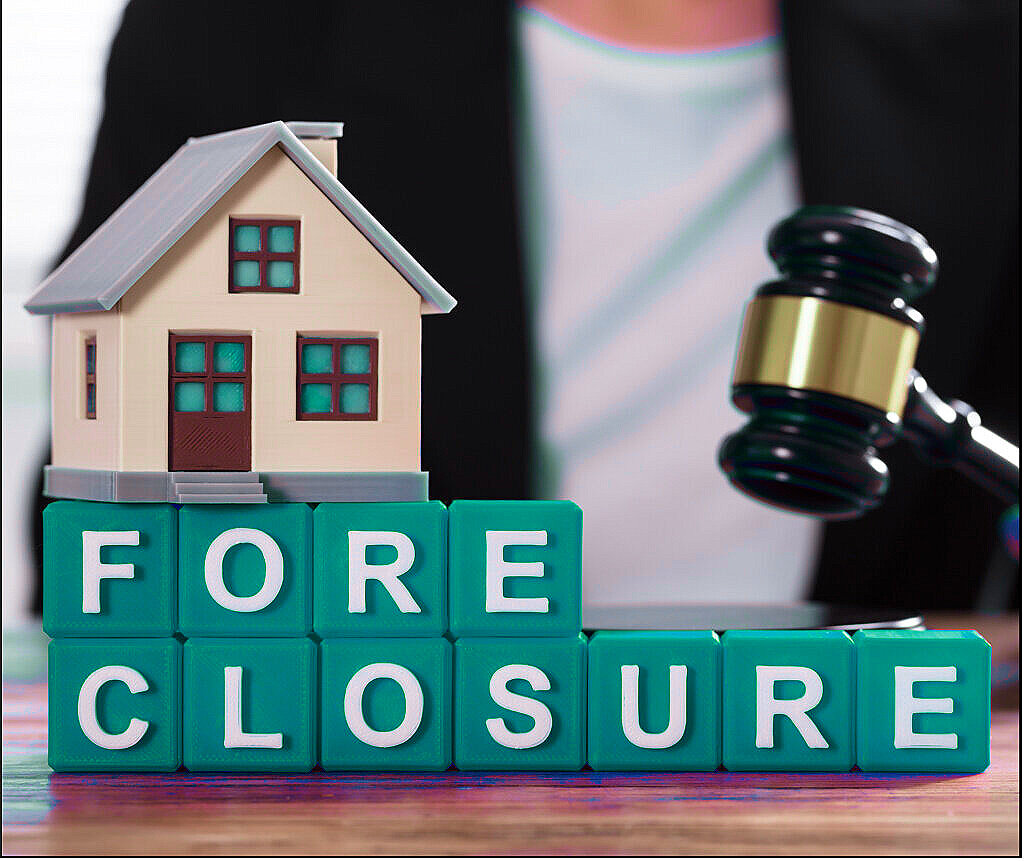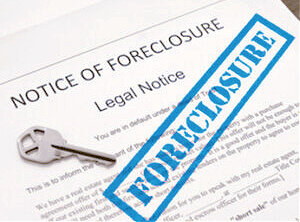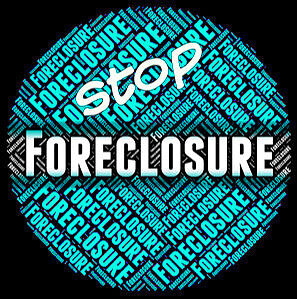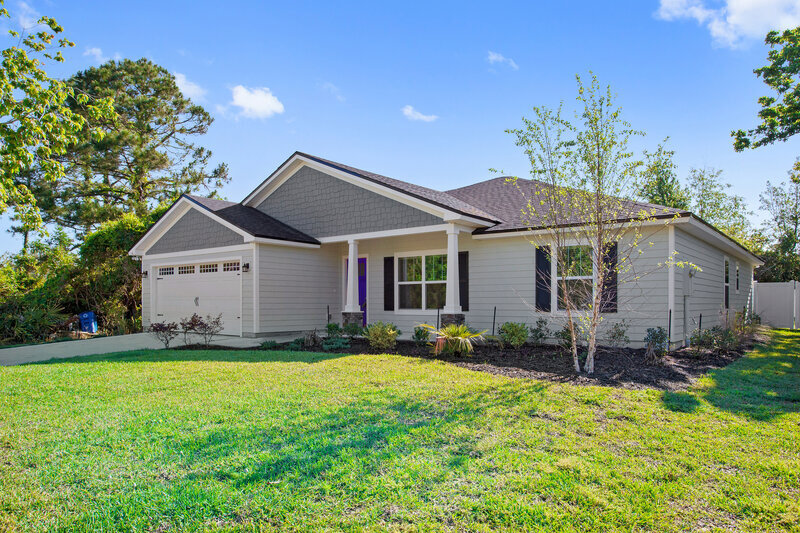Exploring The Process Of Foreclosure In North Carolina
Selling a house in foreclosure in North Carolina can be a complicated process, so it’s important to know what to expect. The foreclosure process in North Carolina begins with the lender initiating a lawsuit against the homeowner.
This lawsuit will include a complaint and summons which must be served on the homeowner. Once served, the homeowner will have twenty days to respond or face a default judgment from the court.
After this, the court may issue an order of sale that allows for a sheriff’s sale of the property. In some cases, however, lenders may choose to start negotiations with the homeowner for an alternative solution such as loan modifications or short sales.
It is important for homeowners and potential buyers alike to understand all of their options when exploring foreclosures in North Carolina. Additionally, it is essential that buyers complete their due diligence by researching local laws and policies regarding foreclosures prior to submitting any offers on properties through foreclosure auctions or other transactions. For those looking for a straightforward and efficient sale, working with cash home buyers in Greensboro (or elsewhere in NC) can be an excellent option.
Table of Contents
1. Exploring The Process Of Foreclosure In North Carolina
2. Strategies To Maximize Your Financial Outcome When Selling A House In Foreclosure North Carolina
4. Examining Tips And Things To Consider When Selling Your Home In Foreclosure North Carolina
6. Exploring The Process Of Selling A House In Foreclosure North Carolina
7. Uncovering Benefits Of Selling A House In Foreclosure In North Carolina
8. Examining How To Negotiate With Banks During The Sale Of A House In Foreclosure In North Carolina
Understanding The Foreclosure Timeline In North Carolina

The foreclosure process in North Carolina can be a complicated one, and it is important for potential sellers to understand the timeline before taking the next steps. Starting with the notice of default, the homeowner will receive a letter in the mail notifying them that they are behind on their mortgage payments.
If payment is not made within 30 days, the lender may proceed with foreclosure proceedings. From there, a Notice of Sale must be published in a local newspaper for three consecutive weeks and must also be posted at the courthouse door and mailed to all interested parties.
The home will then be sold at auction to the highest bidder. The sale must occur at least 20 days after the date of publication of the Notice of Sale but no more than 60 days later.
It is important to note that if no bids are received at auction, or if there is an inadequate bid, then ownership of the property may pass back to the lender. Once this has occurred, any liens held by other parties against the property will be extinguished, and the title will transfer free and clear.
Looking At The Pros And Cons Of Selling A Home In Foreclosure In North Carolina
Selling a home in foreclosure can be a viable option for North Carolina homeowners, but there are pros and cons that must be considered. On the plus side, selling your home in foreclosure may offer you a fast and easy way to move on from your property.
In addition, it can provide some financial relief by reducing or eliminating debt associated with the house. Conversely, however, selling your home in foreclosure can also damage your credit score significantly and will remain on your credit report for years to come.
Furthermore, you may receive less money for the house than if you had sold it through traditional means. When deciding whether or not to sell a home in foreclosure in North Carolina, it is important to weigh all of these factors carefully before making any decisions.
Strategies To Maximize Your Financial Outcome When Selling A House In Foreclosure North Carolina

Selling a house in foreclosure in North Carolina can be a tricky process, but with the right strategies in place, you can maximize your financial outcome. One strategy to consider is pricing the home appropriately.
Research similar homes in the area to get an idea of what you should list the house for. You also want to make sure that any repairs or renovations are completed before listing.
If you’re able to, invest in cosmetic updates such as painting or replacing flooring as they can increase the value of your home and draw more potential buyers. Additionally, it’s important to be prepared for a quick sale when selling a house in foreclosure.
You may not have much time between listing and closing, so be ready to accommodate offers quickly. Lastly, make sure you have all of your documents ready and accurate before listing the house—this includes deeds and title information as well as any other relevant documents pertaining to ownership or liens on the property.
With these strategies in mind, you’ll be better equipped to maximize your financial outcome when selling a house in foreclosure in North Carolina.
How To Stop Foreclosure Processes In North Carolina
Selling a house in foreclosure in North Carolina can be a difficult and stressful experience. It is important to understand the process of foreclosure and how to prevent it from happening before you enter the market.

The first step is to familiarize yourself with the laws and regulations that govern foreclosures in North Carolina, as there are certain rules and regulations that must be followed. Once you know the legal requirements for preventing foreclosure, you can start researching potential solutions for your situation.
Some options include refinancing your mortgage or working with a credit counselor who can help you manage your debt. Additionally, if you have equity in your home, selling your house before it goes into foreclosure may be an option to consider.
It is also important to contact your lender directly as soon as possible so that they can provide assistance and guidance on avoiding foreclosure. Finally, if all else fails, talking to an experienced real estate attorney may help you stop the process of foreclosure in North Carolina.
Assessing Short Sales Vs. Foreclosures: Which Is Better For Your Credit Score In North Carolina?
When considering a foreclosure sale in North Carolina, it’s important to understand the differences between a short sale and a foreclosure in order to make an informed decision that best fits your financial situation. Short sales can be beneficial for your credit score because they are typically viewed more favorably than foreclosures by lenders.
With a short sale, you can negotiate with the lender to accept less than what is owed on the loan, and the remaining balance is forgiven. This means that if you owe more than what the property is worth, you can still settle with the lender without having to pay back the full amount.
On the other hand, when it comes to foreclosures, lenders will typically take full possession of the property, and you may end up owing money after the sale of your home. It’s important to note that both short sales and foreclosures will have a negative effect on your credit score, but short sales generally have less of an impact than foreclosures.
Therefore, in order to make sure that you’re making an informed decision when selling your home in North Carolina, it’s important to weigh all of your options and assess which option is most suitable for maintaining or improving your credit score.
How To Take Advantage Of Selling Your Home Pre-Foreclosure In North Carolina
Selling a home pre-foreclosure in North Carolina is a great way to take advantage of the current real estate market. Before beginning the process, it is important to understand all of the regulations, laws, and procedures that are involved in selling a home in foreclosure.
It is also important to have a clear understanding of the timelines and deadlines that must be met to ensure that your sale is successful. The first step when selling a home pre-foreclosure in North Carolina is to consult with an experienced real estate attorney who can provide you with legal advice and guidance on how best to proceed.
Additionally, you should research the local foreclosure laws so you know exactly what rights and obligations you have as both a seller and buyer. You should also contact your local county office for information on any additional fees or taxes that may be associated with selling your home pre-foreclosure in North Carolina.
Once these steps are taken care of, it’s time to find an interested buyer and begin negotiating terms. Having an experienced real estate agent by your side during this process can help you navigate through any legal issues that arise and ensure that you get the best price possible for your property.
Evaluating Different Ways To Sell A Home In Foreclosure In North Carolina
When selling a home in foreclosure in North Carolina, it is important to consider all of the available options and evaluate which one is the best fit for your situation. Selling a property through an auction or using a real estate agent are two popular methods.
Auctions can provide quick turnover times but come with many risks as buyers do not have time to fully evaluate the property before bidding. Working with an experienced real estate agent may take longer, but they can help you secure a more favorable price by working with potential buyers and providing advice on how to prepare the property for sale.
Additionally, working with an agent gives you access to their network of contacts who may be interested in purchasing the property. Ultimately, no matter which method you choose, it’s important to be aware of the legal requirements that must be met when selling a home in foreclosure in North Carolina so that you can avoid any potential issues down the road.
Analyzing Challenges When Selling A Home In Foreclosure North Carolina
The process of selling a home in foreclosure in North Carolina can present unique challenges, so it is important to have a thorough understanding of the specifics of the situation. There are certain laws and regulations that must be followed when going through this process, and failure to do so may result in legal issues or loss of the home.
It is also important to research the market value of the home prior to listing, as buyers may be more hesitant if they perceive that they are paying too much for the property. Additionally, there may be complications with title searches due to unpaid liens or back taxes which must be addressed before closing.
Working with a qualified real estate agent who has experience with foreclosures can help ensure all necessary steps are taken, and any potential roadblocks are identified early on. With proper planning and research, selling a home in foreclosure in North Carolina does not have to be overly complicated or time-consuming.
Examining Tips And Things To Consider When Selling Your Home In Foreclosure North Carolina

When selling a home in foreclosure in North Carolina, certain details must be taken into consideration. Homeowners should understand the legal implications of a foreclosure sale and familiarize themselves with local laws regarding foreclosures.
Additionally, it is important to know the timeline of the process as well as who will be responsible for any costs associated with the sale. A real estate or legal professional can help homeowners better understand their rights and obligations when it comes to selling their homes in foreclosure.
Furthermore, homeowners should research information about comparable sales in their area so they can get an accurate idea of what price they should list their property at. Lastly, it is wise to create a comprehensive checklist of tasks that need to be completed throughout the foreclosure process, such as meeting deadlines and communicating with lenders or buyers.
Taking all these tips into account can help homeowners make the best decisions possible when selling their property in foreclosure in North Carolina.
Reviewing Key Takeaways: Can You Sell A House In Foreclosure North Carolina?
It is possible to sell a house in foreclosure in North Carolina. However, there are some key takeaways that must be addressed before such an action can be taken. First, it is important to understand the legalities of a foreclosure sale and the potential risks involved.
Depending on the county, state laws may dictate the timeline for when a homeowner must vacate the property after another party has purchased it. Additionally, if the buyer does not make timely payments on their mortgage, they may face serious financial consequences including foreclosure proceedings initiated by their lender.
Once a buyer has reviewed all of these factors and determined they can proceed with a sale, they should familiarize themselves with the process of selling a house in foreclosure in North Carolina. This includes researching local markets and current trends to determine what type of price range would be appropriate for their home.
It is also essential to seek professional guidance from an experienced real estate agent or attorney who can help guide them through every step of the process.
Analyzing How Much Time Do You Have To Sell Your Home Before Losing It To Foreclosure North Carolina?
The process of selling a house in foreclosure in North Carolina can be daunting, and understanding how much time you have before the property is lost to foreclosure is critical. When a homeowner falls behind on mortgage payments, the lender may file a Notice of Default or Notice of Sale with the county clerk.
This document informs the homeowner that their rights to the property will be terminated if they don’t bring their account current within three months. Depending on the type of loan and other factors, this timeline can vary.
In some cases, if a homeowner does not make timely payments for six or more months, a lender may file a foreclosure complaint with the court. The homeowner then has 20 days to respond to the complaint; otherwise, they will lose their right to sell the property through foreclosure.
If you are facing foreclosure in North Carolina, it is important that you take action quickly so that you have enough time to try to sell your home before it goes into foreclosure.
Investigating How Long Does It Take To Sell A Home In Foreclosure North Carolina?
When it comes to selling a home in foreclosure in North Carolina, the process can take anywhere from several weeks to over a year depending on the individual circumstances. Investigating how long it takes to sell a home in foreclosure in North Carolina involves familiarizing yourself with both state laws and local foreclosure processes.
You must be aware of the timeline for filing the Notice of Default and when the Notice of Sale is filed. These documents are crucial for initiating foreclosure proceedings and setting up an auction date for potential buyers.
Understanding the timeframe required for a successful sale is important so that you have realistic expectations about when you may receive payment. It’s also necessary to consult with experts who are knowledgeable about local regulations and market trends, as well as experienced real estate agents who know how to effectively market your property for maximum exposure.
With these tips and resources in mind, you’ll be able to determine the estimated time for selling a house in foreclosure in North Carolina.
Exploring The Process Of Selling A House In Foreclosure North Carolina
Selling a house in foreclosure in North Carolina can be a daunting task, but understanding the process and being prepared to follow it is key. To start, you need to have an understanding of the laws governing foreclosures in North Carolina.
It is important to understand what type of foreclosure is taking place as well as any associated legal implications and requirements. Once you are familiar with the laws, you will need to determine whether or not you are eligible for a deed-in-lieu of foreclosure or if it would be more beneficial for your financial situation to sell the property through an auction.
You must also get in touch with the lender to get approval for any sale and discuss any additional documentation that may be required. If selling through an auction, it is important to research similar properties in the area so that you can set a reasonable minimum bid price that will attract potential buyers.
Finally, when selling a house in foreclosure in North Carolina it is essential that all necessary paperwork is completed properly and timely so that closing can take place without issue.
Examine The Legality Of Selling A House In Foreclosure In North Carolina
Selling a house in foreclosure in North Carolina can be a complicated process, but it is possible with the right information. It’s important to understand the legal implications of selling a home in this situation, as there are different rules and regulations for each state.
In North Carolina, there are two types of foreclosure processes: non-judicial and judicial. For non-judicial foreclosures, the lender must give the borrower written notice that they have defaulted on their loan before repossessing the property.
After repossession, they will offer it for sale at a public auction. Judicial foreclosure allows lenders to take possession of the property without giving prior written notice to the borrower; however, they must still follow certain procedures outlined in state law.
Before selling a house in foreclosure in North Carolina, sellers should contact an attorney to ensure all steps are taken correctly according to state law. There may also be specific restrictions regarding how much money buyers can bid or what types of financing they can use when purchasing a property through foreclosure.
Additionally, sellers need to understand their rights when negotiating with potential buyers during the sale process so they don’t end up losing money or getting into legal trouble due to violations of state laws.
Uncovering Benefits Of Selling A House In Foreclosure In North Carolina
Selling a house in foreclosure in North Carolina can provide a variety of benefits to the seller. Knowing and understanding the process can help ensure that you get the most out of this situation.
One benefit is that you may be able to avoid paying closing costs, which means more money in your pocket. Additionally, you may be able to negotiate with the bank for a higher sale price as they are often eager to get rid of these properties quickly.
Additionally, if there are any liens associated with the property, you may be able to negotiate with the lender and have them released prior to closing. Furthermore, because people are often searching for foreclosures, it is likely that you can get your house sold quickly due to increased demand.
Lastly, this type of transaction can be handled relatively quickly since it does not require as much paperwork as traditional sales transactions do. Knowing all of these potential benefits can help give sellers peace of mind when deciding whether or not selling a house in foreclosure is right for them.
Investigating Strategies For Quickly Selling A House In Foreclosure In North Carolina
When it comes to selling a house in foreclosure in North Carolina, there are many factors to consider. It is important to understand the laws and regulations that apply to foreclosure sales.
Knowing what documents will need to be prepared, such as deeds of trust, title insurance, closing statements, and other legal papers, can help expedite the process. Additionally, researching local market trends can assist in determining the best listing price for the property.
In addition to traditional real estate agents, there are now a variety of online services available that can provide guidance on how to quickly sell a house in foreclosure. Finally, understanding your rights and obligations throughout the entire process is essential for navigating this often complicated situation.
Examining How To Negotiate With Banks During The Sale Of A House In Foreclosure In North Carolina
Negotiating with banks during the sale of a house in foreclosure in North Carolina can be a challenging process. It is essential to understand the complexities of foreclosure law and procedures and how they may impact the sale of property.
With proper knowledge and preparation, however, sellers can take advantage of every opportunity to negotiate favorable terms with their lenders. First, it is important to understand the legal implications of selling a foreclosure property.
In North Carolina, when a borrower fails to keep up with mortgage payments, the lender may file a lawsuit against them. This lawsuit will result in an Order of Sale being issued, which orders the sheriff’s office to sell the home at auction.
Knowing this information can help you determine whether you have any legal recourse or options for negotiation with your lender. Additionally, it is important to be aware that lenders may be willing to negotiate on fees or interest rates if faced with financial hardship or difficulty making payments on time.
Understanding what kind of flexibility your lender has is key to successful negotiations. Lastly, having an experienced real estate agent who understands foreclosure laws and procedures can make all the difference when it comes to navigating negotiations with banks during the sale of your home in foreclosure in North Carolina.
Assessing What Steps Are Needed To Successfully Sell A House In Foreclosure North Carolina
When selling a house in foreclosure in North Carolina, it is important to understand the necessary steps that must be taken in order to do so successfully. The first step is to ensure that the foreclosure process has been completed correctly.
This includes filing all of the necessary paperwork with the court and obtaining a Certificate of Title from the clerk. Additionally, it is important to hire an experienced real estate attorney who can help navigate any legal issues or complications that may arise throughout the process.
After this is done, the homeowner should familiarize themselves with local laws and regulations regarding foreclosures and contact their lender for advice on how best to proceed. It is also important to research any potential buyers thoroughly before entering into an agreement with them, as well as ensure that all agreements are properly documented.
Finally, homeowners should look into options for assistance such as housing counseling programs available through HUD or other agencies. Taking these steps can help ensure that a house in foreclosure in North Carolina can be sold successfully and without issue.

